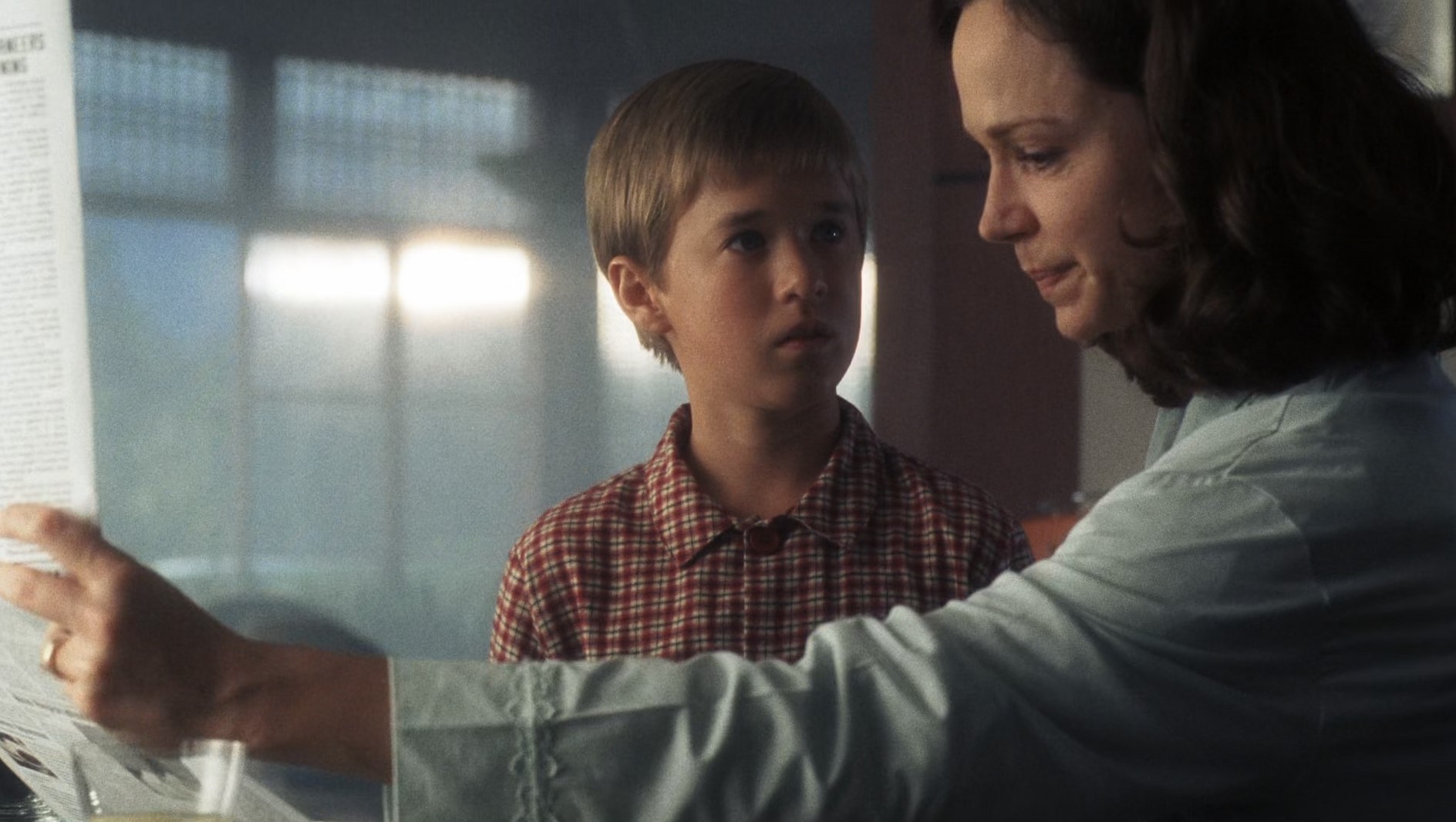A discussion of why robots with emotions should be respected as human-like beings, drawing on the movie A.I. to explore the potential for robots as agents that can provide emotional comfort to humans.
Machines are getting smarter. It may not be too far in the future before machines, and more specifically robots, have the ability to be intelligent and make their own decisions. The 2001 movie A.I. went one step further and depicted robots with emotions. We don’t know exactly when such robots will become a reality. Even if it does, as with many scientific issues, there will be debate about whether it is necessary to develop such a robot. However, the history of scientific and technological development suggests that it will continue to move forward, not stay stagnant or regress. Therefore, it is worth considering the situation when such a robot is developed. In this essay, based on the movie A.I., we will consider what problems might arise if robots with real emotions are developed and we have to live with them in our daily lives, and how they should be solved.

First, let’s look at the movie A.I. in general. The movie is set in the distant future, where the greenhouse effect has caused the polar ice caps to melt, cities to flood, and natural resources to be depleted. Many countries have decided that they can no longer support their populations and have legally restricted pregnancy, leading to the need for robots that can function as members of society without draining resources. At this point, science and technology are so advanced that robots are developed not only for human convenience, but also to have emotions like humans. Henry and Monica adopt David as a test case when their only son, Martin, is terminally ill and unable to live a normal life. Programmed to love people, David recognizes Monica as his mother and adapts to human society. But when Martin’s illness is cured and he returns home, David is abandoned in the woods with his teddy bear. David embarks on a journey to become a real person in order to regain his mother’s love, but in the end, he fails to fulfill his dreams and shuts down.

If you’ve seen this movie, you’ve probably felt compassion for David, and it stuck with you long after the movie ended. Even though David is a robot and not a human, we feel compassion for him. Monica, the movie’s character, feels for David for a short time, but then abandons him when Martin returns. However, she also feels compassion for David. Monica abandons David in the woods with a teddy bear to make him look like a human child because she knows that if she sends him to the lab, he will be discarded immediately. But that doesn’t change the fact that she abandoned him. Would she have made that choice as easily if David had been human? We might make the same choice if we were actually in Monica’s situation, but the reason we feel compassion for David in the movie is because he is a robot with emotions. I believe that if robots are endowed with emotions, it is only fair that they are treated somewhat like humans, even if they are not perfectly equal to humans. In other words, robots with emotions are a new concept that we need to recognize and deal with as somewhere in between machines and humans. Think of a machine like a vacuum cleaner versus a robot with emotions. We can easily throw away a vacuum cleaner when it’s no longer useful, but we shouldn’t do that with an emotional robot like David because he is more than a machine. I’ll explain the rationale for this later.
To answer the question of whether the argument that robots with emotions should be treated with respect makes sense, I want to explore a few questions. These are questions that people might have when faced with the argument I’ve presented, and by answering them, I hope to help you understand the argument. First, you might wonder if the robots I’m arguing for respect can be considered living beings. This is because respect for non-living things is not easily accepted. But of course, robots are not life. One of the greatest goals of science is to create a complete living organism through science and technology, not through natural processes, and this has been and will continue to be a constant challenge for many scientists. However, living organisms are more complex than we can imagine, and creating a robot with the characteristics of a real living organism seems impossible at the moment. And even if it were possible, it would be a far cry from the kind of robots in movie A.I. that we’re talking about in this essay: robots with emotions. Even the robots in these movies, which are set in the distant future with highly advanced science and technology, are not fully human-like. Therefore, the answer to the question “Can robots be considered life?” is that they are not biologically alive. However, the question of whether or not a robot is a life form is not very relevant to the discussion in this essay. The reason I’m arguing in this essay that robots should be treated with some degree of humanity is not because they have a biological form, but because they have emotions.
So is the question of whether non-living robots should be treated by humans even relevant? Being treated by humans is a social issue, not a biological one. In the movie’s setting, robots have become a part of human life due to social necessity. By social need, I mean not only the convenience of humans, as mentioned earlier, but also the most fundamental aspect of living: emotional comfort. This movie emphasizes the latter. Emotions are so important to humans that they affect our daily routines and can even serve as a yardstick for evaluating our lives. For example, when looking back on their lives before they die, some people may evaluate their lives in terms of economic success or social honor, but most will evaluate them in terms of emotion, thinking about whether they lived a happy life. Therefore, a robot with emotions would be a great comfort to humans, especially those living in harsh environments like the one in this movie. However, if we stop at acknowledging this comfort and do not move on to respecting the robots that provide this comfort, we are ignoring the importance of emotions in human life. Therefore, even if robots are not respected as living beings, they can be respected as entities with emotions, not just lumps of steel.
However, in response to the argument that robots provide important emotional comfort to humans, one might argue that if robots’ emotions are not real, they cannot be respected even if they have emotions. So, are robot emotions real? Emotions are an abstract concept that cannot be easily defined, although they are certainly felt in relationships between people. However, if emotions are something that can be exchanged between two or more entities, and that can change itself in response to the emotions exchanged, for example, if love is not only exchanged, but can grow in love for the other person because of the love it receives, then robots can be said to have real emotions, at least for the purposes of this movie-based discussion. This is because David is constantly trying to win Monica’s love by loving her, and if robots didn’t have emotions, they wouldn’t be trying to win her love.
Even if the robot’s emotions are real, it could be argued that humans can dominate it, since it is humans who created the robot with those emotions after all. This is the last question I would like to address regarding robot respect. Even if a robot has emotions, should it still be subject to humans if those emotions were created by humans? To answer this question, let’s consider a simple example. Consider the relationship between a parent and a child. It could be argued that the child was created by the parent, so the parent should have control over the child. In reality, of course, it is common for children to become independent of their parents as they grow older. A similar logic can be applied to robots with emotions. The moment a robot has emotions, those emotions already belong to it, and it can be independent of human control. In other words, a robot with emotions becomes the subject of those emotions, which dilutes the logic of human subordination. However, just as in the relationship between a parent and child, the child still has a certain amount of respect and care for the parent even after the child becomes independent of the parent, a similar relationship can be established between humans and robots.
I will conclude this essay with a discussion of the movie A.I. I have argued that robots with emotions, as depicted in the movie, should be treated with the same respect as humans because, first, although they are not living beings, the moment they have emotions, they become entities that deserve the same respect as humans, and, second, emotions, as depicted in A.I., provide important comfort to humans. Of course, I’m not claiming that the robots in the movie A.I. actually exist, and I’m only discussing these situations as if they were real. Therefore, it is up to future scientific and technological developments to determine whether what I have discussed will actually happen and how it will affect human society.
